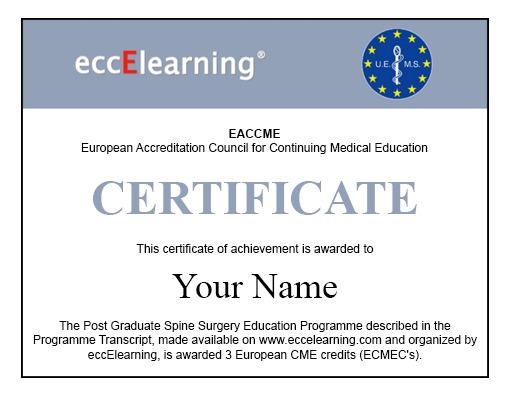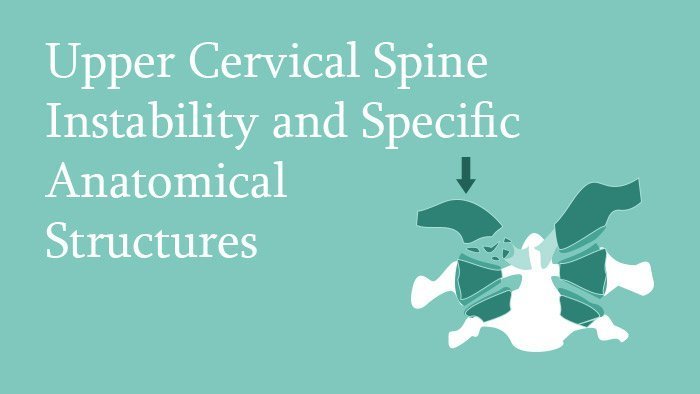Upper Cervical Spine: Instability and Specific Anatomical Structures
This spine surgery lecture deals with post-trauma instability of the upper cervical spine and anatomy of the upper cervical spine.
Enrol to View This Lecture
Access to all 180 Spine Lectures with our Spine Surgery Education Programme.
Lecturer: Max Aebi, MD, DHC, FRCSC
Includes:
- Online Lecture Presentation
- Pre- and Post- Learning Assessments
- Additional Learning Materials (Standard Package only)
- Up to 3 CME Credits
Ref.ID: 6_7_aebi
DOI: 10.28962/01.3.112
What you will cover in this lecture
This spine surgery lecture deals with the complex anatomy of the upper cervical spine. The important bony details and the ligaments involved in stability are described, and the accurate anatomical representation is presented. Clinical instabilities in the upper cervical spine are discussed in three separate parts: C0 to C1, C1 ligamentous and bony, and C2 bony. Finally, all the relevant classifications of this complex region are provided, with references to the text and historical literature.
Learning Objectives
- Definition of upper cervical Spine
- Diagnotic tools to assess the instability of upper cervical spine
- Patterns of instability of upper cervical spine
- Specific injuries to soft tissues and bones of upper cerivical spine
Target Groups
Practicing Spine Surgeons
in Orthopaedic or Neurosurgical services for Continuing Education or recertification
Max Aebi MD, DHC, FRCSC
- Professor Emeritus Orthopaedic Surgery, McGill University, Montreal (CND) and University of Bern (CH)
- Member of the European Academy of Science
- Deputy Editor Web-based Education, European Spine Journal
- "Das Rückenzentrum" at Salem-Spital Hirslanden, Bern (CH)
eccElearning Participation
Co-ordinating Editor
Editor
Author
- The History of Spine in Medicine – and beyond
- Adult Scoliosis - Epidemiology, Natural history, Classification, Clinical Assessment, HRQOL
- Classification of Sub-Axial Cervical Spine Injuries
- Upper Cervical Spine: Instability and specific anatomical structures
- The Treatment of Upper Cervical Spine Injuries
- Classification of Thoracolumbar Fractures
Lecture Presentation
Upper CS: Instability and Specific Anatomical Structures
Includes:
- Online Lecture Presentation
- Pre- and Post- Learning Assessments
- Additional Learning Materials (Standard Package only)
- Up to 3 CME Credits

Enrol to View This Lecture
Access to all 180 Spine Lectures with our Spine Surgery Education Programme.
Frequently Asked Questions
Q: What is an eccElearning Lecture like?
A: Each Lecture includes the Lecture Presentation, Additional Learning Resources, Pre-Learning Quiz and Lecture Assessment.
Each Spine Surgery Lecture is viewed online in video format and lasts from 20-45 minutes. The Lectures contain relevant additional learning resources (book chapters, research papers, surgical videos, master lecture videos, case reports, review articles, etc.), which are presented in context and viewable immediately for your convenience.
Lecture 5.1 is an invited Master Lecture and does not include the Quiz and Assessment components.
Q: How much time will a Lecture take?
A: Lecture presentations typically take 20-45 minutes to run. However, candidates are required to review the compulsory and recommended additional learning resources contained within the Lecture. The time taken to view the Lecture and review the additional resources is in the range 3-4 hours per Lecture.
Q: What kind of credits do I get from the Lecture?
A: Each Spine Surgery Lecture can confer up to 3 Continuing Medical Education (CME) credits, certified by European Accreditation Council for Continuing Medical Education (EACCME). The CME credits are awarded to the candidate on successful completion of the online Lecture. The number awarded depend on the number of additional learning materials available in a Lecture - premium versions of the Diploma and Modules include more material for each lecture, so confer more CME Credits.
Q: What payment methods are accepted?
A: All major credit and debit cards.
Q: What are CME Credits?
A: CME stands for Continuing Medical Education. You are awarded CME Credits for undertaking an approved course of medical education. Each Lecture that you complete successfully adds to your CME Credits total. All Lectures provided by eccElearning are accredited by the European Accreditation Council for Continuing Medical Education (EACCME), of the Union Européenne des Médecins Spécialistes (UEMS). You can print out your Certificate of CME Credits after the completion of any Course or Lecture.
Q: What do I do if I fail a Lecture Assessment?
A: You are permitted to retake a Lecture Assessment up to two times. The Lecture Assessment will be made available to you again 14 days after a failed attempt. If you’ve failed the Lecture Assessment three times, please get in contact with us to discuss your options.
Q: What courses does eccElearning provide?
A: We have the Diploma in Spine Surgery with Modules individually purchasable, and Spine Surgery Specialist Certificates in Radiology and Physiotherapy.









